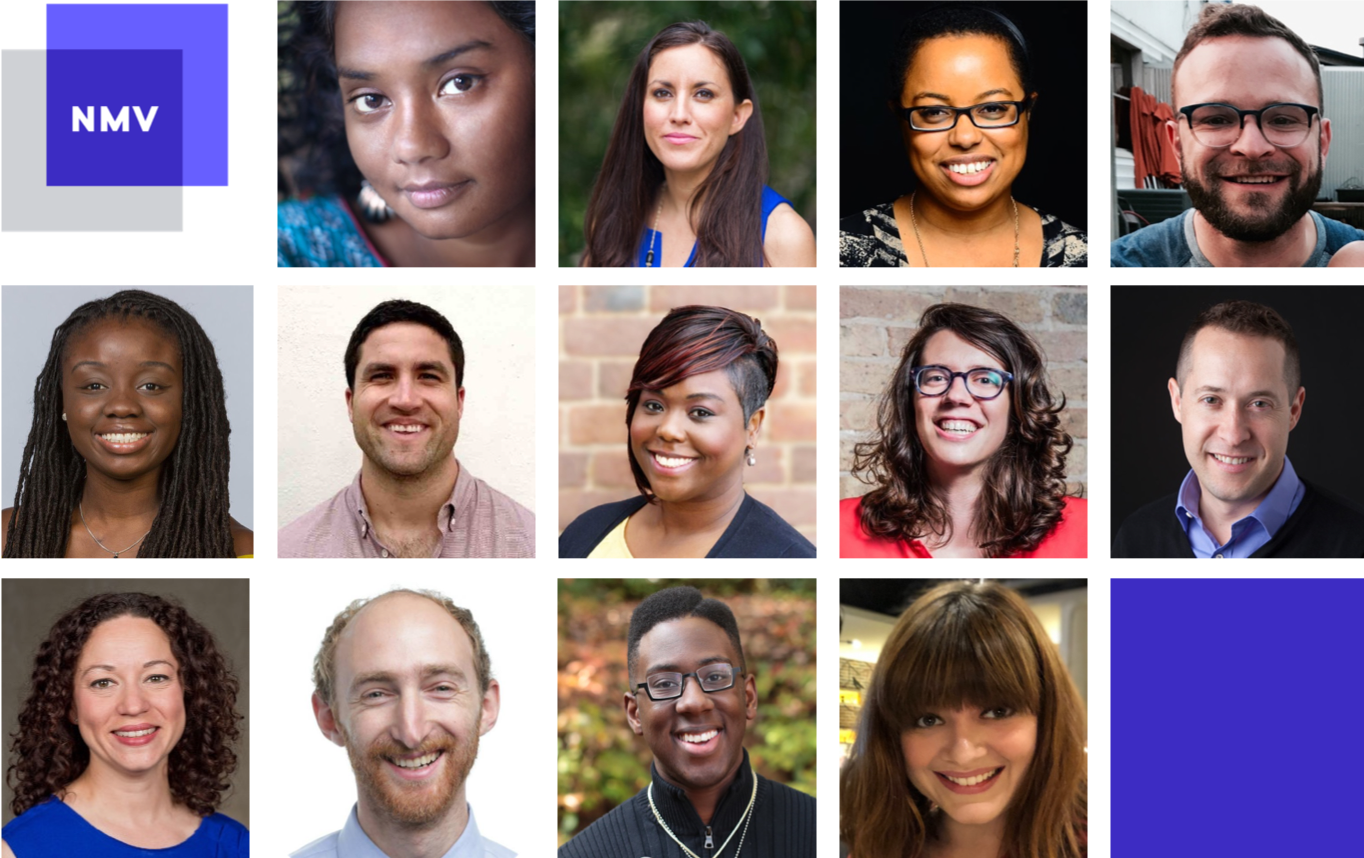Civic Tech Gleanings from New Media Ventures New Innovation Round
Published
In the categories:
- For Investors
- For Startups

Yesterday, New Media Ventures announced the 13 organizations that it has selected to share $1.2 million in seed funding for the seventh round of its Innovation Fund. These thirteen startups made it through a very competitive pool of nearly 740 applicants—a 50% jump over the number who applied in 2017–and the results have been much anticipated.
In its seven years of operation, NMV has grown substantially and now plays a very important role in the civic tech and political tech ecosystem. It backs innovative tools, media, advocacy, digital organizing, civic engagement and efforts centered on voting and elections. It raises money to give away to promising start-ups focused on those areas, ranging from nonprofits to mission-driven for-profits. Money from NMV usually leads to more money; the $1 million it funneled to 17 groups in 2017 ultimately led to at least another $3 million in direct and indirect funding for them.
NMV’s 2018 round started with this announcement back in early January. As Julie Menter, the group’s managing director explained, the focus of the open call was on efforts that “shift the story” and thus showed promise in “changing hearts and minds” and “building movements for the future.” As she wrote regarding the former:
Whether you’re focused on increasing empathy, strengthening journalism, shaping narratives, leveraging new content platforms, or developing tools for listening, analytics and amplification… we want to hear from you. We’re also eager to hear about new business models that reward quality and engagement, solutions that elevate new and diverse voices, and creative distribution strategies to ensure content reaches new audiences, beyond echo chambers.
And regarding the latter:
Civic engagement is on the rise, and movements for justice are gaining traction across the US, but our technology and tools often remain stuck in the past. Are you building technology or tools that mobilize citizens, make campaigns more efficient, or blend digital and grassroots organizing? We can’t wait to hear about your work. We’re especially interested in tools for distributed and networked movements, technology that helps coordinate volunteers, campaigns, and candidates, and innovations that facilitate conversations and decision-making.
With all that in mind, here are some first-pass observations about the thirteen organizations being funded with this latest announcement.
Of the 13, five are nonprofits: EARN.org, Equality Labs, mRelief, Jolt, and Spread the Vote. Three are mission-driven for-profits: BallotReady, Pay Your Tuition and Weird Enough Productions. And the remainder are political organizations focused on helping Democrats win campaigns or progressive advocacy organizations better mobilize voters.
Most of the organizations are post-Trump. The exceptions: EARN.org, founded in 2001 with a focus on economic inclusion for lower-income Americans; Pay Your Tuition, which helps families access capital and loans to help pay for college, founded in 2014; Weird Enough Productions, which creates comics books and other cultural products to spread media literacy among young people, started in 2014; BallotReady, which was founded in 2015 to use AI and structured crowdsourcing to make more information available about lower-ballot candidates; and mRelief, also founded in 2015 to help connect families to social services they are entitled to.
Of the eight in the post-Trump group, the majority not surprisingly have a strong electoral focus. Mobilize America, co-founded by a former Obama campaign worker and a former Clinton campaign worker, offers a state of the art volunteer management platform, along with a big online events calendar of organizing opportunities. The Movement Cooperative, which has been nurtured here at Civic Hall as its founder Josh Nussbaum—originally a tech consultant to Indivisible—carefully built its original founding core, is a cooperative of more than a dozen national progressive groups that are pooling funds to buy and spread access to core voter engagement resources and tools. Jolt is focused on organizing Latinx voters in Texas. Resistance Labs makes tools for voter registration and engagement, leading with Rapid Resist, a text-banking system that generated millions of messages around the November 2017 races. Run for Somethingis helping train and support thousands of new candidates for office and aims to endorse around 1000 in 2018. Spread the Vote is focused on helping the 20 million-plus voters whose franchise is threatened by voter ID laws gain access to the government issued photo IDs they now need. Swayable is using data to figure out what stories may persuade which voters.
Of the newer groups, only Equality Labs, which is focused on fighting helping the 4.5 million South Asian Americans battle the caste system, racism and Islamophobia, and does a lot of digital self-defense trainings, is not focused on electoral mobilizations.
This breakdown is similar to the mix of groups that NMV backed in 2017. That year it helped 17 startups, most of which were in the “resistance” category, with the majority having emerged in the wake of the 2016 election. (And a quick glance at that group suggests that NMV had pretty good judgment about who to back.)
Several of this year’s winners have already scored support from other early backers of civic and political tech. BallotReady and mRelief are past recipients of funding from the Knight Foundation, for example. Mobilize America and Swayable went through Higher Ground Labs‘ accelerator program, along with Ballot Ready. And mRelief and Swayable also went through yCombinator. Jolt’s founder was a winner of one of the J.M Kaplan 2017 innovation prizes. But for the majority of the winners of NMV’s new round, it looks like this is their big break-through moment.
It’s interesting to note that only two of the organizations being funded make a big deal of some of the latest buzz-words in tech, like big data, machine learning and artificial intelligence. BallotReady says it uses AI to help streamline its information gathering process. And Swayable is promising to build a data-driven approach to understanding what kinds of stories or campaign messages are most effective at moving which kinds of voters.
But most of these organizations are more about organizing people socially than they are about engineering solutions to engagement problems. For example, Jolt is centering a lot of its efforts in Texas on building local chapters for students and what it calls “unions” for people who are out of school and under 35. Intriguing! Weird Enough Productions engages young people with comic books and posters.
And where tech is a key vehicle for engagement, it looks pretty mundane. EARN helps low-income people become monthly savers with a simple reminder system called SaverLife that it says now has more than 100,000 users, for example. Run for Something has built a high-touch network of hundreds of mentors and coaches for the more than 10,000 candidates who have raised their hands seeking help with the nuts and bolts of campaigning.
Looking back at NMV’s original open call, it’s apparent that the group’s thinking evolved as it waded through the massive pile of proposals it got this year. Of the 13 winners, I think it’s fair to say that only three are engaged in shifting narratives, using media to change hearts and minds: Equality Labs, Swayable and Weird Enough Productions. The bulk do appear to be building tech for movements and political engagement, in line with the original call. NMV’s support for groups like EARN, mRelief and Pay Your Tuition is worth noting then, because these choices reflect a rising trend in civic tech, away from tools and platforms seeking to increase civic engagement or empower communities in their advocacy efforts, and towards products that directly seek to improve the lives of low-income people.
Of course, one shouldn’t read too much into any single list of funded start-ups. There are other valuable sources of funding for start-ups in closely related arenas, like Fast Forward’s annual cohort of tech nonprofits, Higher Grounds Labs’ accelerator, and Matter.vc’s pool of media start-ups. But given New Media Ventures focal role at the intersection of civic tech, political advocacy, and voter engagement, it’s useful to see how and where it is putting down its bets. We’ll be watching to see what bears fruit and why.
For more from Micah, be sure to visit Civicist!

